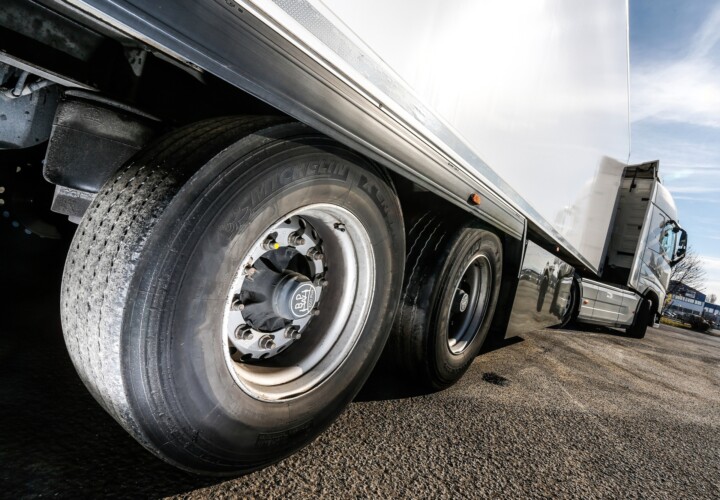Chris Smith, Sales Director B2B at Michelin Tyre Company will deliver his expert view at 8:20am in the Innovation Zone at the Microlise Transport Conference at the Ricoh Arena on 15th May 2019…
TALK THE TORQUE…
Despite all the advances in modern vehicle technology, the fundamental issue of wheel detachment has continued to be a major cause of concern and is widely recognised as a global road safety problem.
When a wheel becomes detached from a moving truck or trailer, it has the potential to accelerate to speeds of up to 150 km/h. This has been likened by academics to a bouncing bomb, reaching a height of up to 50 metres before potentially colliding with other road users at an equivalent force of around 10 tonnes.
A Transport Research Laboratory report into wheel loss on commercial vehicles, published for the Department for Transport, estimated that the annual frequency of wheel fixing problems in the UK stands at between 7,500 and 11,000 incidents. Of these, some 150 to 400 result in actual wheel detachments, with 50 to 134 causing damage, 10 to 27 leading to injury and between 3 and 7 resulting in a fatality.
Those are statistics no truck operator wants to be part of – particularly when you consider the reputational damage which could follow.
So, are fleets right to be concerned about wheel loss? Put simply, yes…
Consider a standard heavy truck wheel fixing for a moment. There are typically 10 studs and nuts holding that wheel assembly onto the axle, and the clearances that exist to allow studs and rim holes to easily line up are generous. This means there is potential for movement – and you are reliant on nut heads and enough torque to hold the wheel in place.
As the wheel turns, it’s subject to thermal expansion, vibration and axial forces acting upon it – and those forces load onto one or two studs in sequence, rather than all 10 simultaneously. This means those generous tolerances present a less-than-perfect mechanical set-up.
Fleet operators have been trying to address the issue for years, usually with brightly coloured indicator tags which will highlight to a driver if a wheel nut is starting to loosen.
But herein lies the problem… Indicator tags can only detect potential wheel loss situations on stationary vehicles; yet wheels don’t detach when a vehicle is parked up for the night. They are also reliant on the driver conducting their walk-around vehicle inspection; and as we know, that doesn’t always happen.
Given methods of truck wheel fixings are unlikely to change any time soon, the only true way of staying truly protected is to turn to the latest generation technology.
Michelin-licensee Wheely-Safe has developed the world’s first in-motion driver alert system to detect the onset of wheel loss from commercial vehicles before detachment. It doesn’t matter what speed a vehicle is travelling, or in what weather conditions, an alarm will be raised as soon as a wheel nut loosens by as little as 1mm – allowing the driver to safely pull over.
What’s more, the wireless system will also monitor for unusual brake and hub temperatures, helping to alert drivers before an issue results in a fire, downtime or even an accident. It also incorporates a full vehicle tyre pressure management system (TPMS), to tackle the average 9-10% under-inflation common in most fleets, and which costs operators millions of pounds in wasted fuel and tyre life every year.
Join us for a demonstration on the Michelin stand at the Microlise Transport Conference.




